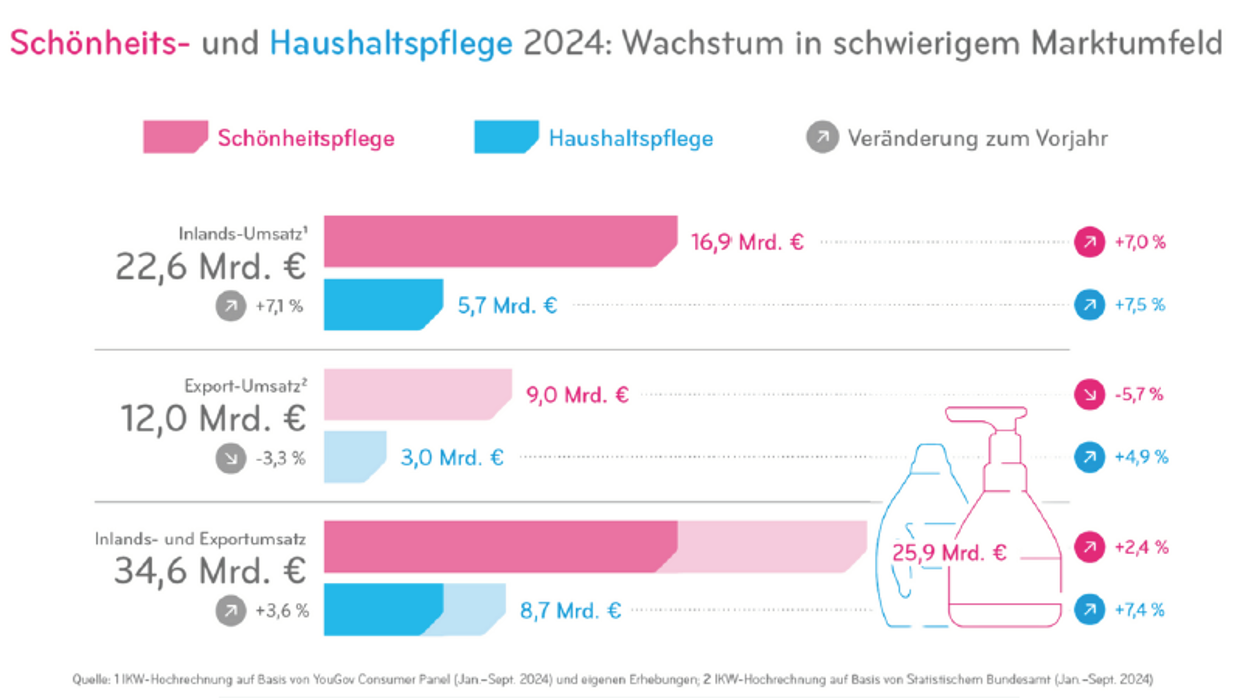News
News
Cosmetics grow during the crisis
Industry association of the beauty sector delivers nice figures
Retail sales of cosmetics and household care products rose to 34.6 billion euros last year, according to the German Cosmetic, Toiletry, Perfumery and Detergent Association (IKW). Domestic sales grew to 22.6 billion euros, while export sales fell slightly to twelve billion euros. "Mirroring the general economic trend, the consumer climate has not come out of the cellar," says the new IKW Chairwoman Gabriele Hässig. "Our industry is proving resilient in this situation. We are maintaining our growth course."
More care instead of pessimism
Beauty care products recorded an increase in sales to almost 17 billion euros in Germany. Decorative cosmetics grew by ten per cent, followed by oral and dental care with an increase of nine per cent, shaving care with eight per cent and hair care with six per cent. "In a time of crisis and conflict, a well-groomed, individual appearance is particularly important to consumers," emphasises IKW Board Member Georg Held. "Our companies fulfil this need with quality and innovation."
Costs and regulation slow down innovation
However, high costs, growing bureaucracy and excessive regulation would reduce the scope for investment and threaten the competitiveness of the industry. According to Held, they are a serious obstacle to economic development. More than half of the companies see themselves under severe pressure from rising energy prices and labour costs as well as inflation. In addition to cost pressure, additional notification and reporting obligations such as those imposed by the "Green Deal" are making business more difficult. The economy is also expected to remain weak this year. However, IKW expects a stable growth trend.
Strong voice of the industry
The industry association for cosmetics, personal care and detergents represents more than 440 companies. In addition to some globally active groups, many member companies are characterised by medium-sized businesses. The companies cover more than 95 per cent of the industry's turnover in Germany and employ 50,000 people.
Source: IKW

